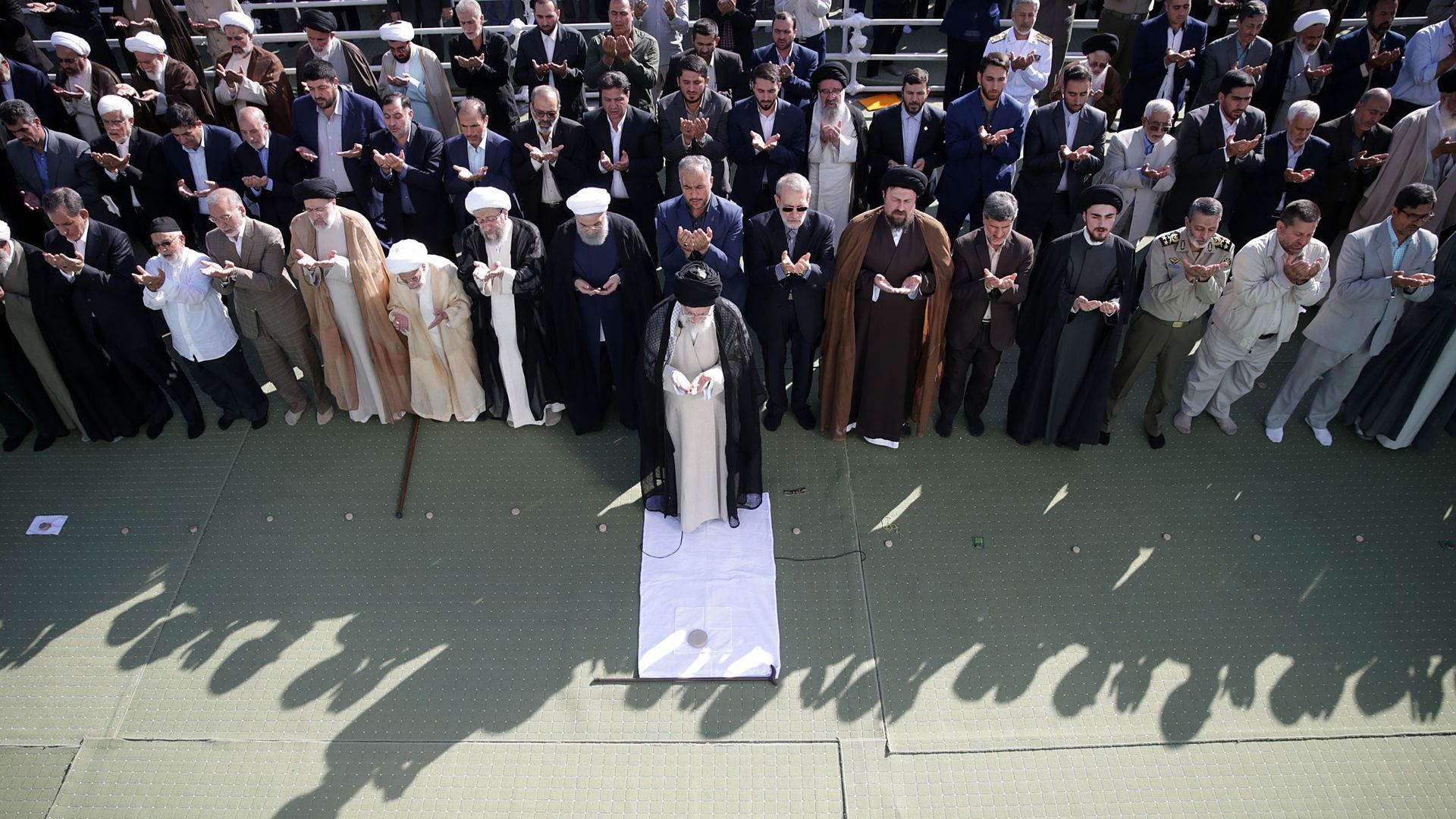Iran creeps outside nuclear boundaries, into the dark
Add Axios as your preferred source to
see more of our stories on Google.

Iran has followed through on its threat to enrich uranium beyond the purity limit set under the 2015 nuclear deal, the UN's nuclear watchdog confirmed today.
Why it matters: Iran is attempting to loosen its sanctions chokehold by demonstrating to the U.S. that there are costs to "maximum pressure," and to the deal's other signatories that, absent a stronger economic lifeline to Tehran, they could soon be facing a nuclear crisis.
- Iran's steps toward increased nuclear enrichment so far have been limited and reversible, but the regime says more will come in 60-day increments.
- "While any escalation is a gamble, Iranian leaders appear ready to resume the game of 'chicken' that defined the country's relations with the West from 2006 to 2015," Behnam Ben Taleblu of the Foundation for the Defense of Democracies writes for Axios Expert Voices.
- "This could spiral out of control quite quickly depending on U.S. actions," Wendy Sherman, who served as the top U.S. negotiator on the 2015 deal, told reporters on a briefing call today. "I think this will be a step-by-step process, but one which could lead us to military action, which would be not only dangerous but disastrous."
The big picture: Rob Malley of the International Crisis Group, who recently met with Iranian officials, says the plan in Tehran after President Trump pulled out of the deal was to "hunker down and wait."
- A year later... sanctions are hitting harder than expected, the Europeans have failed to deliver much economic breathing room and it's looking risky to bet on a Trump loss in 2020.
- Iranian leaders believe Trump doesn't want war, and they hope pressure on the nuclear front will convince him to dial back sanctions and abandon his maximalist demands. Breaching the deal also provides them with cards for any future negotiations.
- “It's both a very unyielding, uncompromising stance — 'we're not going to be bullied, we're not going to negotiate with a gun to our head' — but it's also a notion that if the right conditions exist, they would be prepared to talk," Malley says of the Iranian position.
The European signatories want to deter further Iranian escalation while keeping the teetering deal from collapsing entirely.
- "They don’t believe the maximum pressure strategy is working, and they don’t think anybody would gain from war," Richard Dalton, a former U.K. ambassador to Iran, said on the call.
What to watch: More significant breaches of the deal could make the European position untenable, and even lead to the re-imposition of sanctions. Each step also raises the chances of a military strike from the U.S. or Israel.
Go deeper: Iran's nuclear escalation raises stakes for U.S. and Europe
